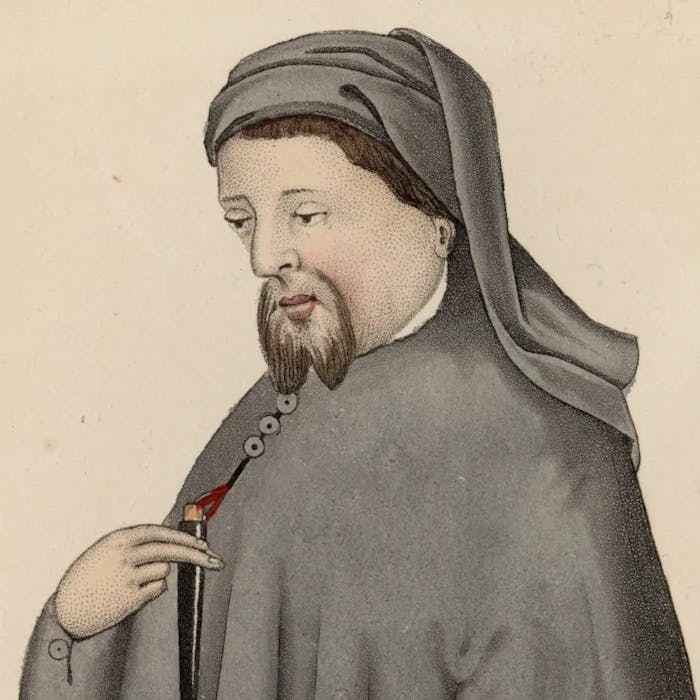
Geoffrey Chaucer: early tales from English Literature
Geoffrey Chaucer, called 'the father of English literature', lived in the fourteenth century, and is best known for The Canterbury Tales that details a storytelling contest from participants on a pilgrimage from London to Canterbury. Chaucer was the first writer to be buried in Poets' Corner, Westminster Abbey.
Although c. 1340 is customarily given as Chaucer’s birth date, 1342 or 1343 is probably a closer guess. He was born in London to a wealthy family; his father and grandfather were vintners (wine merchants). Chaucer's early education would have meant he was fluent in French, and he also became competent in Latin and Italian.
He first appears in the records of 1357 as a member of the household of Elizabeth, the wife of Lionel (the third son of Edward III).
It is believed that Chaucer's father was able to place him among a group of youngsters serving in the royal household - a customary arrangement allowing courtly education and connections.
By 1359, Chaucer was serving in Edward III's army in France. Chaucer was captured during the unsuccessful siege of Riems, and the king contributed to his ransom. Chaucer then served as messenger from Calais to England during peace negotiations in 1360.
In 1367, Chaucer was afforded an annuity for life, as yeoman of the king, and the following year was listed among the king's esquires - who lived at court and performed staff duties.
Chaucer's first important poem, The Book of the Duchess, was written between 1368 and 1372. It tells of how Ceyx lost his life at sea, and how Alcyone, his wife, mourned his absence. Chaucer's prolific output of writing showed him to be an acute observer of his time, with a deft command of many literary genres. His magnum opus The Canterbury Tales was written from 1387 - although it is thought to have been unfinished at the time of Chaucer's death in 1400.
Further reading
- The Complete Works of Geoffrey Chaucer - Online Library of Liberty
- The Life of Geoffrey Chaucer - Chaucer Heritage Trust
- The Pilgrims Way - Southwark Cathedral
Links to external websites are not maintained by Bite Sized Britain. They are provided to give users access to additional information. Bite Sized Britain is not responsible for the content of these external websites.
